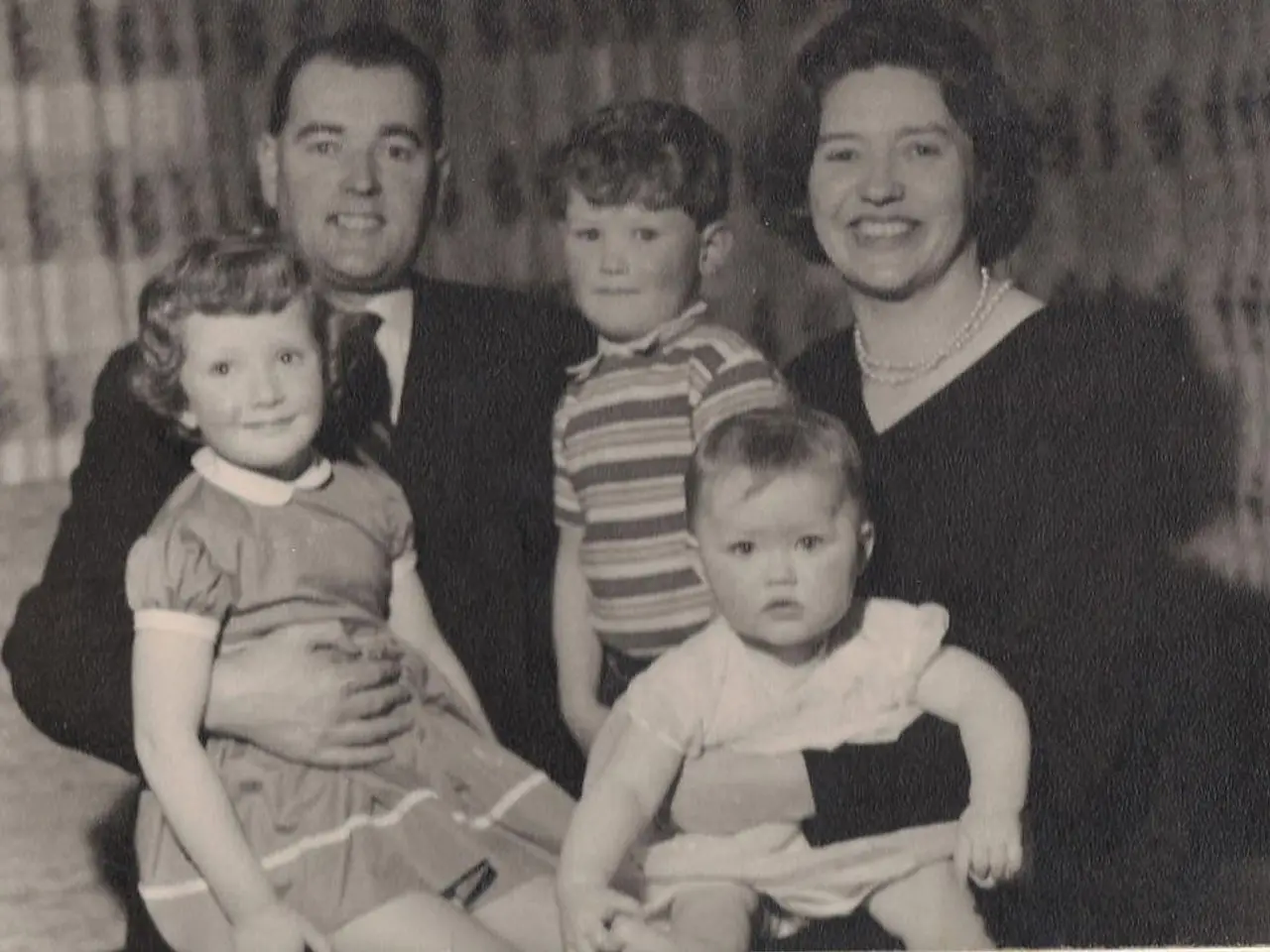Participant of the Child and Family Ombudsman in Chelyabinsk successfully secures demobilization
In the Chelyabinsk region, a resident, who had volunteered for a special military operation, found himself in a challenging situation when his wife was hospitalised in the intensive care unit of the Sklifosovsky Institute in Moscow, following a severe heart condition after giving birth to their sixth child.
The resident was granted a short leave to attend to his family's dire circumstances, but upon the leave's end, he was ordered to return to his unit, with his children set to be placed in an orphanage. However, the situation took a turn when it was discovered that the resident had been listed as having deserted and was wanted.
This case highlights the importance of the support systems in place for families of Special Military Operation (SMO) participants in Russia. According to recent parliamentary measures, these families receive several benefits designed to support them economically and socially, while also promoting recruitment and loyalty among soldiers.
One such benefit is free education and health insurance for the children of soldiers. They are entitled to free university education and school meals, while family health insurance is covered by the state. Financial support is also provided, with families receiving low-interest loans and increased financial incentives for soldiers to sign contracts, including signing bonuses from both the federal and regional levels.
Soldiers are also awarded the prestigious title of “Veteran of the Special Military Operation,” aligning with honoured statuses given to veterans of other major conflicts. Furthermore, the State Duma has adopted an amendment granting benefits to civilian wives of deceased SMO participants, although specific details on these benefits are not yet available.
Participants in the SMO and their family members have access to rehabilitation centers, although the current infrastructure is limited and there are calls for expansion. However, it seems that some of these benefits have started being scaled back.
In this particular case, the situation was resolved after several parliamentary inquiries to the Ministry of Defense. The criminal case against the soldier was closed, and the resident was able to continue caring for his children, with the youngest not yet a year old.
This case serves as a reminder of the complexities faced by families of SMO participants and the importance of the support systems in place to help them navigate through difficult times. It also underscores the need for continued advocacy and expansion of these support systems to ensure that all families receive the assistance they need and deserve.
[1] Source: https://www.meduza.io/news/2022/03/25/v-rossii-v-sostav-gosudarstvennogo-programmy-podderzhki-semej-boevikov-voyny-v-ukraine-vstupili-novye-voprosy [2] Source: https://www.meduza.io/news/2022/03/22/v-rossii-priem-v-reabilitatsionnye-tsentry-pogranichnikov-s-ukrainy-otkazali-ot-raboty [3] Source: https://www.meduza.io/news/2022/03/18/rossiyskie-deputaty-podderzhali-zakonoproekt-o-pensionnyh-voplotakh-semej-boevikov-v-ukraine
- The resident's challenging situation, concerning his wife's health in the intensive care unit and the potential separation from his child due to military duty, underscores the significance of comprehensive support systems for family health in the context of Special Military Operations (SMO) in Russia.
- With the increasing recognition of the importance of family health and wellness, parliamentary measures are designed to provide entitlements like free education, health insurance, and financial support for the children of soldiers – benefits that are crucial in promoting family dynamics and relationships.
- Likewise, these support systems in place can facilitate the rehabilitation of soldiers as they return to society, although current infrastructure is limited, with calls for expansion being necessary to accommodate an increasing number of participants and their families.
- In the case mentioned, it was through continued advocacy and parliamentary inquiries that the criminal case against the soldier was closed, allowing the resident to continue caring for his family, emphasizing the importance of securing democratic benefits for military families facing complex circumstances.




